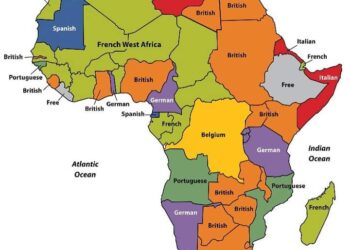Professor Amechi Nweze is national coordinator Nigerian Association of Forensic Psychologists (NAFOP), and senior lecturer at Nasarawa State University, Keffi (NSUK).
In this interview with Dominic Akpensuen, he explains the contributions of NAFOP to the recruitment of security personnel, rehabilitation of miscreants and criminal justice system in Nigeria.
Excerpts.
What is Forensic Psychology all about? When we first know the meaning of psychology then we can easily understand what forensic psychology is.
Psychology is the study of human behaviour; and this can be looked at in two categories namely: overt, which is the external manifestation of behaviour and the covert, which is internal manifestation of behaviour.
This means human behaviour has external and internal dimensions.
What one does such as laughing, jumping, dancing, fighting or driving are the external behaviours of an individual.
Then the internal aspect is known as cognition, which is inside of an individual.
They are things that are hidden in an individual; the individual knows them better; like the way one feels, hatred, ambition, intention and love.
This is very important when talking about law, because when somebody commits criminal offence, the behavior has external dimension; It means somebody sees you stealing the item.
The internal dimension is the motive and intention.
So, psychology assists individual to see an action which is invisible and the one that is visible.
Now forensic psychology is the application of the knowledge, techniques of science of psychology for solving problems of law.
Psychology offers this within the ambit of criminal justice system, as used in dispensing justice.
The various agencies of criminal justice system are the police, judiciary and the prison service.
What are the career opportunities for forensic psychologist? Forensic psychologist offers his services within the criminal justice system.
This system has the police, security agencies, court of law and prison where forensic psychologist can work.
What the forensic psychologists do is to train or teach the prison staff to manage and classify prisoners.
A forensic psychologist is not a police officer, but trained psychologist who is a professional helps the police to understand human behaviour, by conducting research to know who are criminals and their whereabouts.
In the court of law a forensic psychologist interacts with lawyers and educates them on how criminal elements commit crimes.
And what motivates an individual to commit crime is another dimension.
The forensic psychologist also advises the judges about an accused person who is facing trial in the court.
He also, advises judges on civil offences.
How does a forensic psychologist present his finding in the court of law? Forensic psychologist is an expert of his own, but he is not a law enforcement agent.
So, forensic science is the techniques of solving problems of law.
Forensic psychologist cannot conduct autopsy because there are various forms of forensic sciences.
Indeed, forensic psychologist is a behavioral scientist.
What far has forensic psychol ogy been operating in Nigeria? Forensic psychology is relatively a new service in Nigeria.
By history, psychology itself is only 55 years old in Nigeria, so forensic psychology is just at its beginning stage; that is why we have to organise conferences to inform and educate people on what forensic psychology can offer to assist legal system in Nigeria.
What are the contributions of forensic psychologists to national development? Nigeria borrowed their laws from the British colonial administration system, so changing the laws to suit cultural aspirations and various systems is another dimension.
Therefore, in Nigeria, laws are very strict, but not liberal in the system when the mission of criminal laws are taken into consideration.
And teaching people to understand the human behaviour makes Nigerians understand suspects and criminals, and to understand the environment the criminal or suspect operates, and also understand their family and community.
How do security personnel and forensic psychologist relate? Security personnel is actually part of the system of managing crime and ensuring that peace prevails in the system; understanding who the criminal is, keeping surveillance and understanding the movement of people.
Understanding the individual, for instance, why a crime prevail in a place, why somebody who belongs to a particular family behaves or commits more crime are the contribu- tions of forensic psychologists to security personnel.
To what extent are psychologists involved in the recruitment of security personnel in Nigeria? In Europe and North America, psychologists are involved in the selection of this level of personnel.
So what forensic psychologist does in the selection is, apart from one’s physical energy and intellectualism to do the job, he conducts an analysis to know the individual’s behaviour inside out.
This can be discovered when we conduct stress interview, how humane is the person, how calm and capable of handling crisis or conflict, capable of keeping secrets and his interactive capacity.
This is done at the parliament during ministerial screening for high level jobs which involves conflict and crisis.
Nigerians are very prescriptive; on our own we should train our personnel very well.
Psychologist needs to be trained and developed to reach the standard of developed countries.
But the major problem in Nigeria is the poor recognition of psychological functions.
Because in the past, government did not pay much attention to psychology rather, they concentrated on subjects like history, economics, geography and political science which are micro level of development.
They did pay attention to macro development system by developing individuals psychologically.
Now we have the problem of Boko Haram insurgency, almajiri, children that are out of school, youth restiveness, drug abuse.
When the issues of who could handle this forensic psychologists came up government had to borrow expatriates.
Some came but they could not understand the languages of the people because the natives were not trained, therefore there was no personnel to handle it.
For instance, in refugee camps, there were personnel that would address the refugees’ trauma.
Nobody had the techniques like those of the psychologist.



